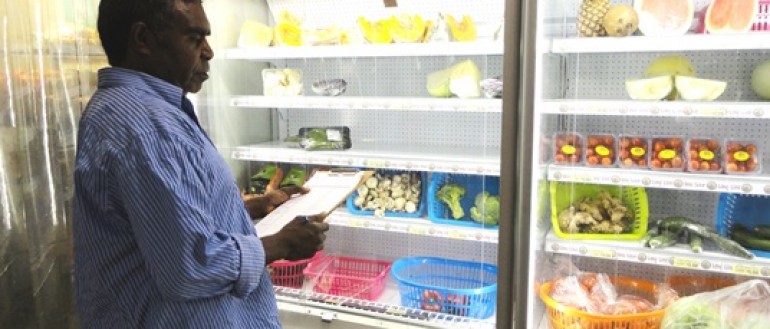Together with store owners across remote communities, we track what is bought in the store and provide real-time information in food purchasing to help inform policy and practice to improve healthy eating.
Good decisions need evidence-based and the most current information. At Menzies we have developed a tool to track what is bought in stores and to provide real-time electronic data to help inform policy and practice to improve healthy eating. Marketing agencies collect and analyse data from schemes such as Flybuys for advertising purposes; we do the same, in partnership with communities, remote stores and remote store associations to improve health.
We have collected data for 20 communities, for over 8000 people and more than 12 000 food products. We have a robust data system with information regarding more than three years’ food consumption. We have plans to work with communities to retain these data and expand this to all stores across the Northern Territory (NT). We can use this system to follow consumption trends over time, assess these against different policy initiatives and potentially relate food consumption to community health outcomes.
Many remote community stores are experimenting with the ‘4 P’s’ of commercial marketing (product, price, placement and promotion) to help make the healthy choice the easy choice for their customers. A good food stores tool we are developing will help stores track the healthiness of their store environment and to use this information to guide further change.
Individual level dietary data can provide information on dietary patterns by gender and age and help determine responses to strategies by different groups. Accurate self-report dietary data is notoriously challenging to collect in all populations as people generally over-report good foods and under-report less healthy foods. We have shown that electronic visual recordings and facilitated recall methodologies can aid the collection of dietary intake data.
- Associate Professor Julie Brimblecombe
- Dr Selma Liberato
- Rachael Jaenke
- Christel van den Boogaard
Current projects:
Completed projects:
- Liberato ,S.C., Bailie, R., & Brimblecombe, J. (2014). Nutrition interventions at point-of-sale to encourage healthier food purchasing: a systematic review. BMC Public Health, 14, 919.
- Brimblecombe, J., Liddle, R., & O'Dea, K. (2012). Use of point-of-sale data to assess food and nutrient quality in remote stores. Public Health Nutrition, 1-9.
- Liberato, S.C., Kearns, T., Ward, F., & Brimblecombe, J. (2015). Use of electronic visual recording to aid assessment of dietary intake of Australian Aboriginal children living in remote communities. Australian and New Zealand Journal of Public Health. June 11 2015.
- Cargo, M., Marks, E., Brimblecombe, J., et al. (2011). Integrating an ecological approach into an Aboriginal community based chronic disease prevention program: a longitudinal process evaluation. BMC.Public Health, 11,299.

